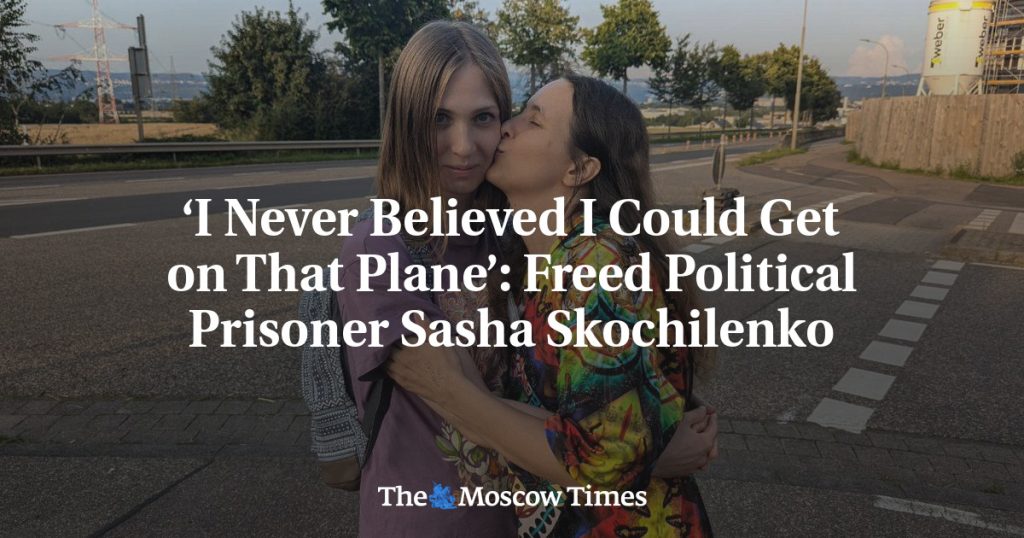St. Petersburg artist Sasha Skochilenko was sentenced to seven years in prison for spreading “fake news” about the Russian army by replacing supermarket price tags with statements criticizing the invasion of Ukraine. Skochilenko defended her actions in court, saying she believes “life is sacred.” Her own life was at risk due to health conditions such as celiac disease and a congenital heart defect that were not always accommodated in prison. Skochilenko was released in a prisoner exchange between Russia and the West, along with over a dozen political prisoners.
Skochilenko and her girlfriend, Sofia Subbotina, discuss the unexpected inclusion of Skochilenko in the prisoner exchange. Subbotina shares her experience of searching for Skochilenko and her eventual contact with her after the exchange. Skochilenko recalls her mixed feelings and thoughts while awaiting the exchange, including fears of remaining in prison for her full term, hopes of early release, and difficulty in dealing with the harsh conditions in prison. Their reunion after the exchange was a mix of happiness and relief, and they now look forward to the future.
Before the exchange, Skochilenko faced difficult conditions in the Lefortovo detention center, including cold temperatures, food inadequacies due to her celiac disease, and violations of her rights. She was denied her right to a one-hour walk and to shower regularly. She also faced obstacles in submitting requests and making calls to her loved ones. Her experiences in prison were challenging and have left a lasting impact on her. Skochilenko does not know who lobbied to get her included on the list of political prisoners up for exchange, and her first days of freedom were spent in a German town where she worked on her art and planned for the future.
Skochilenko and Subbotina plan to continue their human rights work in Germany and support the people who remain in Russia, especially those in prison and their families. They express their desire to build a new life in Germany and learn the language, appreciating the country and its opportunities. Skochilenko dreams of returning to Russia one day, but only as a visitor. She compares her relationship with Russia to an abusive one and sees no reason to return to a place where she faced such hardship and injustice. While she is open to visiting in the future, she does not envision living there again anytime soon.
The experiences of Skochilenko and Subbotina reflect the challenges faced by political prisoners in Russia and the importance of advocacy and support for those still imprisoned. Their story highlights the impact of unjust imprisonment on individuals and the resilience needed to overcome such hardships. Skochilenko’s release represents a glimmer of hope for others in similar situations, as well as a call to action for continued human rights work and support for those who face repression in Russia. Their journey to a new life in Germany symbolizes a fresh start and a commitment to fighting for justice and freedom.















